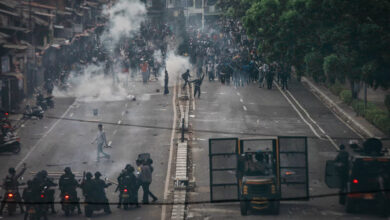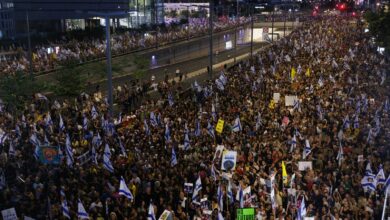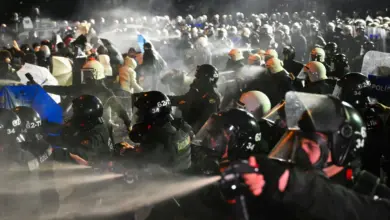The 25 January Revolution Youth Coalition (RYC) on Thursday called on all Egyptians to show their support for the revolutions taking place in various Arab countries by participating in a symbolic protest in Tahrir Square at 4 pm on Friday, outside the Arab League headquarters.
The protest comes as part of the RYC's celebrations on the occasion of the passage of 100 days since the 25 January revolution.
The Coalition also called on all “honorable people in the Arab World” to gather in the main squares of their countries to show their support for “our brothers in Syria, Yemen, Libya and Bahrain."
At a press conference today, the RYC demanded the withdrawal of Egypt’s ambassadors to the four mentioned countries and for these countries’ ambassadors in Cairo to be summoned and officially informed of Egypt’s denouncement of the bloodshed and violence towards the peoples of these countries.
Member of the RYC's Executive Bureau Khaled Talima criticized the Supreme Council of the Armed Forces (SCAF), saying, "The revolution only achieved 20 percent of its goals because of the SCAF's insistence on monopolizing the management of the transitional period and its casting aside of the views of the forces behind the revolution."
Talima went on to say that this monopoly was evident with the issuance of the law criminalizing protests and strikes, which was announced in the Official Gazette despite the prime minister’s promise to reconsider it. He continued by saying that the law of parties, the military trials and the recent move to change several governors were all evidence of this monopoly on decision making.
Talima demanded that a new law for local government be passed, which would allow the election of governors, mayors and district mayors. He also demanded a re-trial for the nearly 5000 citizens who were tried before military courts since the beginning of the revolution and for their trials to be transferred to civilian courts.
Islam Lotfy, another member of the youth group's Executive Bureau criticized the fact that Egypt has not recognized the Libyan National Transitional Council, despite its recognition by the Arab League.
He also criticized the government’s silence on the events in Syria and its ambiguous position with regards to events in Yemen, saying, "Our unity of interests, culture and history makes it necessary for these positions to be reconsidered.”
Translated from the Arabic Edition




